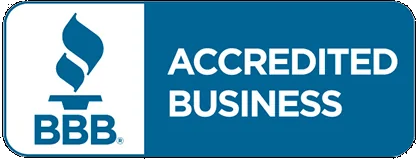

FHA Identity of Interest: Rules, Exceptions & What to Know
Discover how FHA Identity of Interest works, when the 85% LTV rule applies, and what exceptions and documents you need for a smooth transaction.
When applying for an FHA loan, most homebuyers are focused on things like credit scores, down payments, and closing costs. But there's a lesser-known factor that can impact your approval and terms: the FHA Identity of Interest.
What Is an FHA Identity of Interest?
An Identity of Interest, also known as a non-arm’s length transaction, occurs when there's a relationship between the buyer and seller in a real estate deal. That relationship can be personal, business, or even financial.
Common Examples of Identity of Interest Relationships:
- A parent selling a home to their child
- A company selling a property to one of its employees
- A builder selling to a family member
- A landlord selling to their tenant (if other relationships exist)
- Business partners involved on both sides of the transaction
These situations can raise red flags for lenders and the Federal Housing Administration (FHA), because they may increase the risk of inflated property values or manipulated terms.
Why Does FHA Care About Identity of Interest?
FHA loans are designed to help protect both lenders and buyers, especially first-time homeowners or those with limited resources. When a buyer and seller are connected, it could mean:
- The purchase price isn’t based on fair market value
- Gifts or concessions aren’t properly disclosed
- The loan may pose a higher risk of default
To reduce risk, FHA imposes stricter guidelines on these types of transactions.
FHA Guidelines for Identity of Interest Transactions
Here are the main rules you need to know:
🔻 85% Maximum Loan-to-Value (LTV)
In most identity of interest transactions, the maximum loan amount is limited to 85% of the appraised value, rather than the typical 96.5%. This means the borrower must come up with a 15% down payment, which can be significantly higher than usual.
💡 Exceptions to the 85% LTV Rule
FHA allows the full 96.5% LTV if the identity of interest is between:
- Family members, and
- The home will be the buyer’s primary residence, and
- The seller is not an investor (the home must be owner-occupied or vacant)
🏘️ Inherited Properties and Transfers
If a property is inherited or transferred through a legal arrangement (such as a divorce decree or trust), it usually does not trigger the identity of interest limitations—especially if no money is exchanged.
Documentation Requirements
If your transaction falls under identity of interest rules, you’ll likely need to provide additional documentation. This may include:
- A signed letter explaining the relationship between buyer and seller
- Proof the sale price reflects fair market value
- Appraisal by an FHA-approved appraiser
- Gift letters if any funds are being gifted for the down payment
Full transparency is key. Failing to disclose the relationship upfront could delay your closing, or worse, lead to a loan denial.
Tips for Homebuyers in Identity of Interest Situations
✅ Disclose relationships early – Don’t wait for the lender or underwriter to uncover connections. Be proactive.
✅ Work with an experienced Mortgage Broker – A knowledgeable mortgage broker can guide you through FHA’s complex rules and help you explore other options.
✅ Get a thorough home appraisal – Ensuring the value is accurate and defensible is critical.
✅ Explore exceptions – If you're buying from a family member, ask your lender if you qualify for the 96.5% LTV exception.
The Bottom Line 📝
An FHA Identity of Interest doesn’t mean your loan will be denied, but it does require more care, documentation, and understanding of the rules. If you're buying from a relative, employer, or business partner, make sure your lender knows about it upfront. With the right strategy and support, you can still unlock the benefits of an FHA loan, even in a non-arm’s length transaction.
Need Help Navigating FHA Guidelines?
At Onshore Mortgage, we specialize in helping buyers navigate the complexities of FHA loans, including identity of interest situations. Whether you're purchasing from a family member or exploring your first home, we’re here to help you close smoothly and quickly.
📞 Contact us today to get started or learn more about your FHA loan options!
*Credit and income restrictions do apply. Please visit our Disclosures page for a detailed breakdown of all loan types.

Latest Posts


Grant R. Menard MLO NMLS# 17308
CLICK HERE
Onshore Mortgage

Massachusetts Division of Banks NMLS#MB1995582
CLICK HERE
The information contained in this site has been prepared by an independent third party and is distributed for educational purposes only. This is designed to give helpful tips on the mortgage process and is not intended to give legal advice.
Information is considered reliable but not guaranteed. This is not a pre-qualification, pre-approval, loan approval or commitment to lend. We arrange but do not make loans.
© 2020 Onshore Mortgage, LLC. all rights reserved.


.webp)
